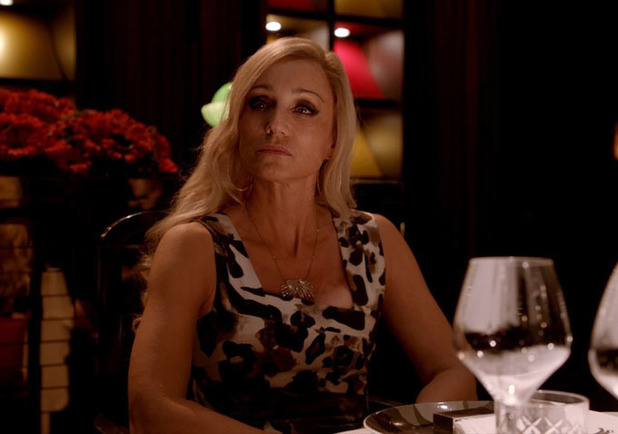Film Review: “Only God Forgives” — A Pseudo-Greek Tragedy
Director Refn’s craftsmanship isn’t in doubt here, just whether this deadening story was worth all the effort.
Only God Forgives. Directed by Nicholas Winding Refn. At the Coolidge Corner Theatre and other cinemas throughout New England.
By Betsy Sherman
Going into Only God Forgives, I was 50/50 on the English-language films of director Nicolas Winding Refn (I haven’t seen Refn’s cult-fav,e Danish work). I found the boisterous, operatic tale of a British tough guy, Bronson, highly annoying, but I liked his Los Angeles neo-noir Drive. The new film, like Drive, stars Ryan Gosling, this time as an American drug dealer and muy thai boxing gym owner in Bangkok.
As in the previous films, heavy stylization, both visual and auditory, informs the substance of Only God Forgives. The trouble is that the substance is a tiresome, pseudo-Greek tragedy about an Oedipal mother-son relationship gone all splashy (lots of throbbing, red vaginal corridors and red-beaded curtains) and symbolic (blades sever arms in a frenzy of mock castrations) and gory (wounds are created and dutifully penetrated). Sensationalistic as it may be, with its repetitiveness and slow pacing, Only God Forgives feels embalmed.
Gosling plays Julian, a man of very few words and partner to his older brother Billy in the Bangkok underworld. After Billy rapes and kills a teenage girl, and is himself killed by the girl’s father, their boss arrives from the U.S. It’s their mother Crystal, played by Kristin Scott Thomas with an American accent, a gaudy, pink wardrobe, and an f-you attitude (she’s the only lively presence in the movie). Once we witness the full force of what she considers mother-love—a combination of come-ons and humiliating taunts—we kind of understand Billy’s sadism and Julian’s impotent masochism (he has a prostitute bind his wrists to a chair and then watches her masturbate). Crystal orders Julian to find Billy’s killer and exact revenge.
Which brings us to the movie’s other larger-than-life figure, a male force that can dare stand up to Crystal’s female assault: Chang (Vithaya Pansringarm). As soon as he enters the scene, he commands deference: it feels like he’s a crime boss. However, his drab outfit pegs him as merely a plainclothes cop. The mysterious Chang is employed as an avenger against Julian’s family in a way comparable to that of Matthew McConaughey’s character in Killer Joe—but with no sex appeal whatsoever. Nevertheless, he easily wins the phallic symbol award, relying on a sword he keeps holstered along his spine and picking up knives and needles along the way for extra credit. Chang’s bit of flair is that he sings karaoke, in interludes that have a Twin Peaks-y feel.
There’s little dialogue in Only God Forgives, with about half in English and half subtitled. Refn is stingy with exposition (it’s only from the production notes that I learned that Chang is a retired police lieutenant, and I still don’t know if he’s father, grandfather, or guardian to the little girl in his house). Granted, the movie isn’t supposed to be understood on a rational level; it’s supposed to mine the subconscious. Certainly the sound design, featuring low electronic hums, creates a mood. The smothering décor (opulent patterns, teeming with dragons) does its part, as does the strategy of isolating actors in discrete shots to suggest that even if they’re in the same room, they aren’t connecting. The craftsmanship isn’t in doubt here, just whether this deadening story was worth all the effort.
Then there’s Ryan Gosling and the desire to see him do something. Sure, he’s played close-mouthed and/or inarticulate characters before. But Julian, even though he does make some attempts to take action, is mostly memorable for his sad, sad eyes. It makes you think about the actor’s last name and how appropriate it is here. He’s a lost baby animal: you just want to scoop him up and rescue him.
Betsy Sherman has written about movies, old and new, for The Boston Globe, The Boston Phoenix, and The Improper Bostonian, among others. She holds a degree in archives management from Simmons Graduate School of Library and Information Science. When she grows up, she wants to be Barbara Stanwyck.


